Aqua Clinics and Aquapreneurship Development Programme (AC and ADP)
Diseases are one of the major threats to aquaculture, and without having an appropriate management plan successful culture operation happens to be almost impossible. Recent FAO the State of the World of Fisheries and Aquaculture 2022 (FAO, 2022) calls for the transformation of aquatic food systems (towards Blue transformation), and one of the three main goals of the vision is “Sustainable aquaculture expansion and intensification.” The main challenge is the intensification, which will cause infectious diseases to emerge and reappear. Understanding the infections and their interactions with hosts, as well as developing diagnostic tools and preventive measures, are essential for realising these aims on a nationwide scale.
The appearance and spread of serious diseases in aquatic animals is one of the main issues. Intensive aquaculture techniques frequently serve as a staging ground for diseases, while international traffic in aquatic animals and their products provides channels for their trans-border transmission. In general, it is thought that moving live aquatic species carries a higher risk of infection spread than moving dead goods. Aquaculture and international trade will continue to grow regardless of the threats posed by diseases.
Aquatic animal health and disease management are now studied from a variety of angles, such as environmental protection and pollution control, human health and epidemiology, site selection and culture technologies, monitoring and sanitation of aquaculture facilities, diagnosis and treatment of diseases of cultured species, avoidance of nutritional diseases, prevention of epidemics of mortality in culture facilities, formulation and implementation of regulatory measures, and more. Aquatic farm animals, in contrast to terrestrial farm animals, require greater care to monitor their health because they live in a complex and dynamic habitat and are not easily visible except under tank holding settings.
Aquatic animal health management is one of the core research themes of the centre. The research team focusing on bacterial, viral, fungal and protozoan and metazoan parasitic diseases of finfish and shellfishes and it’s epidemiology, pathology, host-pathogen interaction, immunology, development of management measures for the control of diseases such as vaccine development, probiotics, bioremediation, prophylactic measures etc. the team working on the development of novel diagnostic tools for the detection and identification of pathogens.
Recent Updates
- ‘PmLyO-Sf9 – WSSV complex’ could be a platform for elucidating the mechanism of viral entry, cellular apoptosis and replication impediments.
- A Novel Approach of Transducing Recombinant Baculovirus into Primary Lymphoid Cells of Penaeus monodon for Developing Continuous Cell Line
- Developed novel plant derived products for the management of different aquatic animal diseases.
Focus Areas
- Isolation, identification and characterization of bacterial, viral, fungal and parasitic agents of aquatic animals, mainly fishes and shell fishes.
- Developments of possible remedial measures for aquatic animal diseases
- Management of diverse aquaculture environments.
- Building up of repositories of aquatic animal pathogens for research and development.
- Surveillance for the emergence, spread and impact of pathogens in aquaculture.
Collaborating Institutes
ICAR-Central Institute of Brackish Water Aquaculture Central Marine Fisheries Research Institute ICAR-National Bureau of Fish Genetic Resources Central Institute of Freshwater Aquaculture Central Institute of Fisheries Education University of Calicut Sher – E- Kashmir University of Agricultural Sciences Technology C Abdul Hakeem College Sea6 Energy Oriental Aquamarine Biotech Private LimitedOur Team
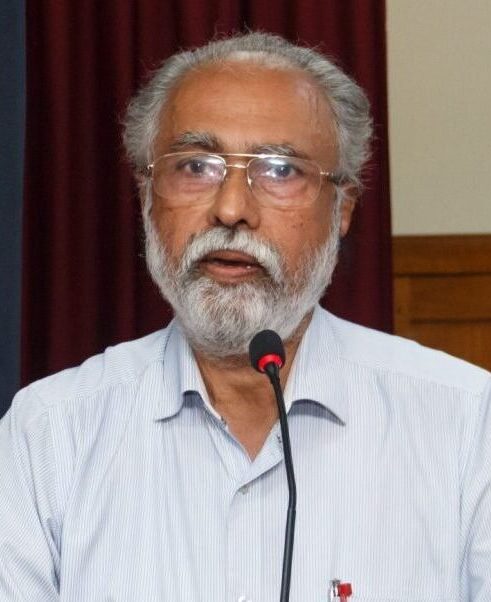

Ahna Ameer
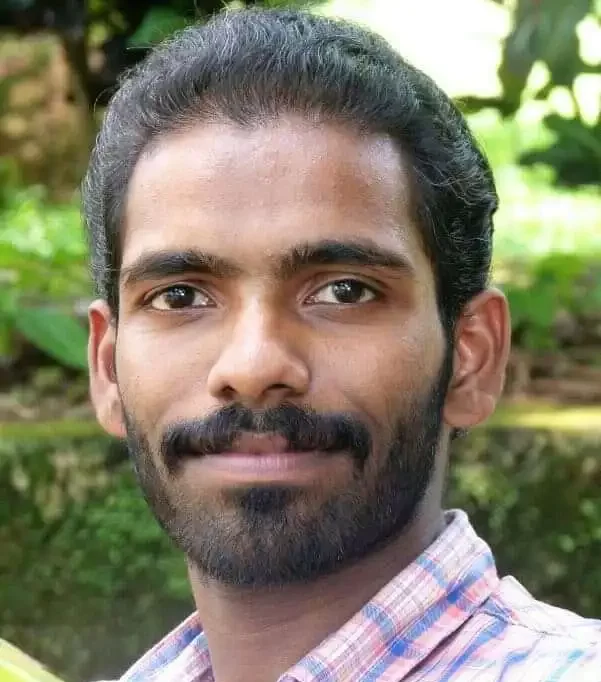
Akshay P. S.

Ambadi Kannan

Diya Dominic

Gopika V. S.

Jini Jimmy

Keerthana P. V.

Linu Eldho
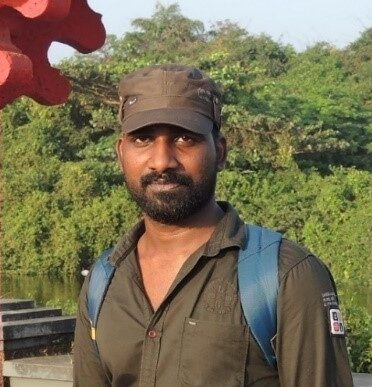
Muneer A.
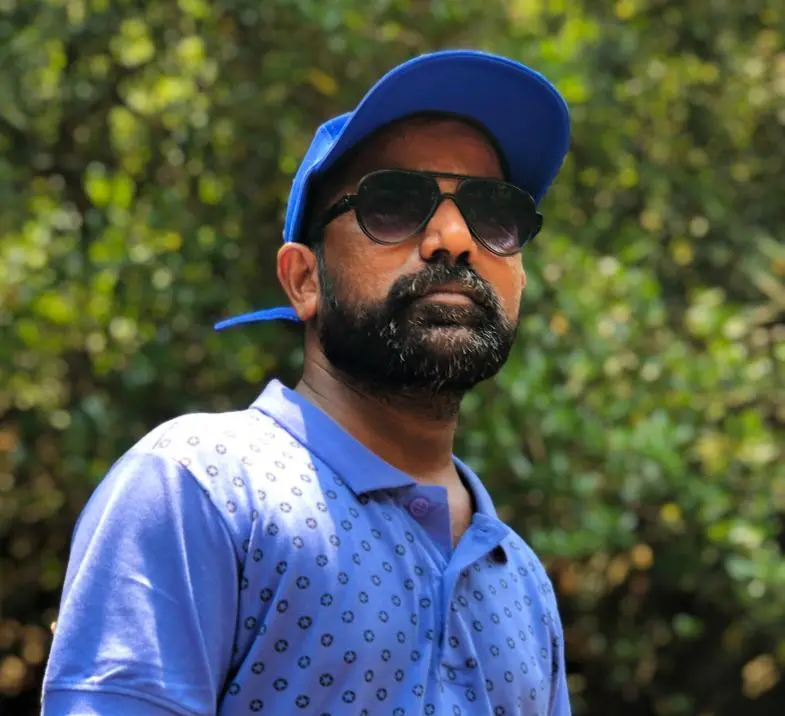


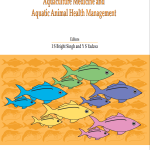 Pre-Workshop Tutorial
Pre-Workshop Tutorial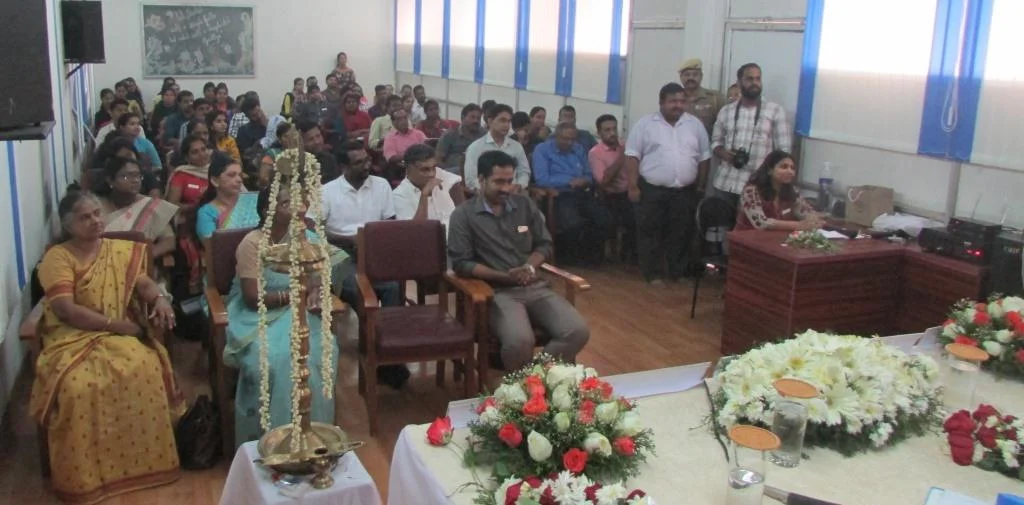
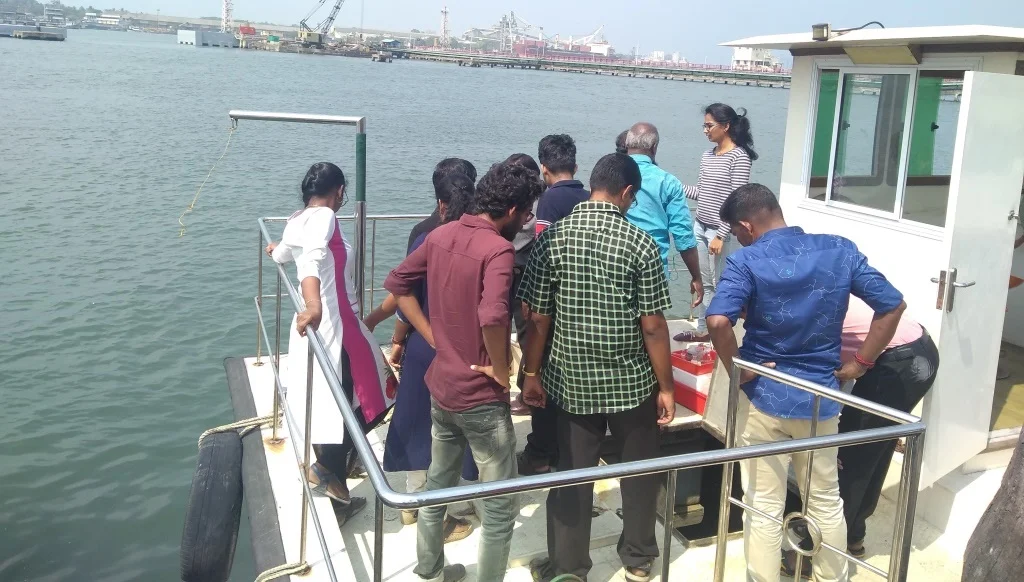
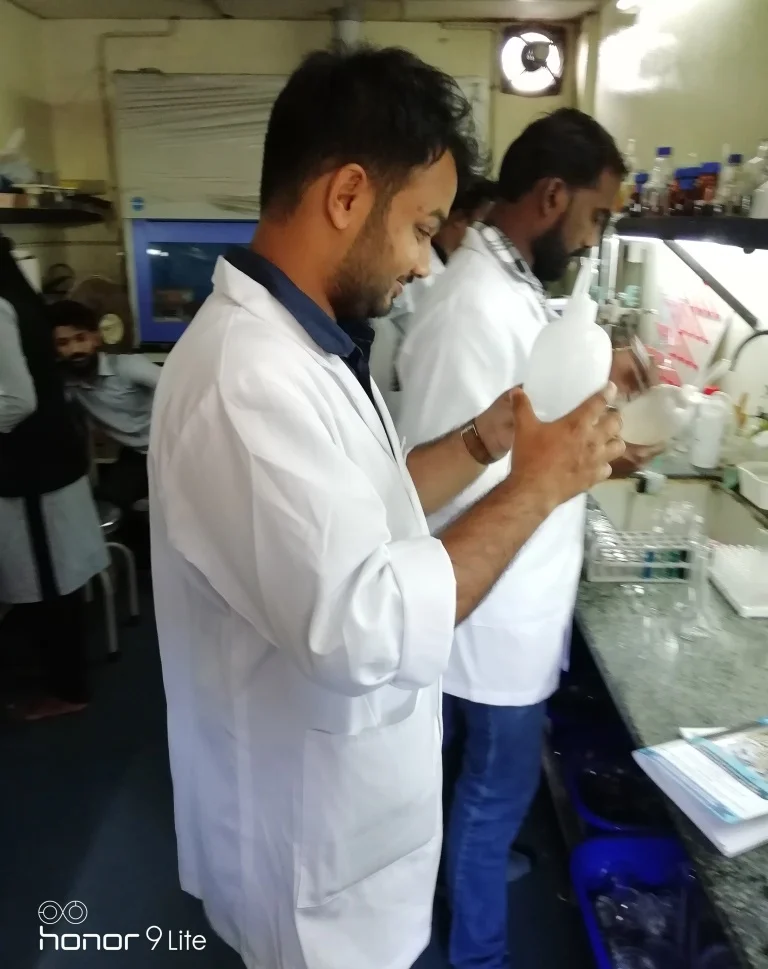
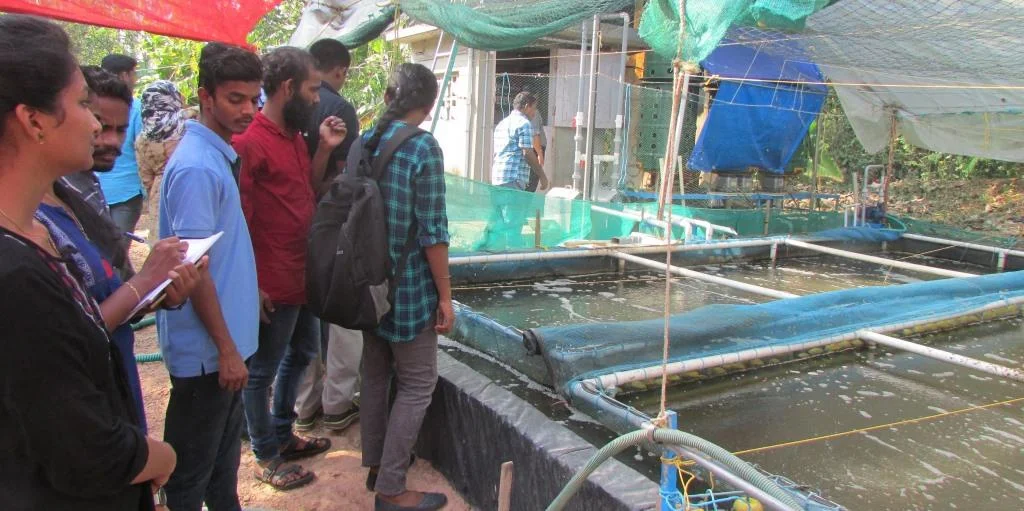
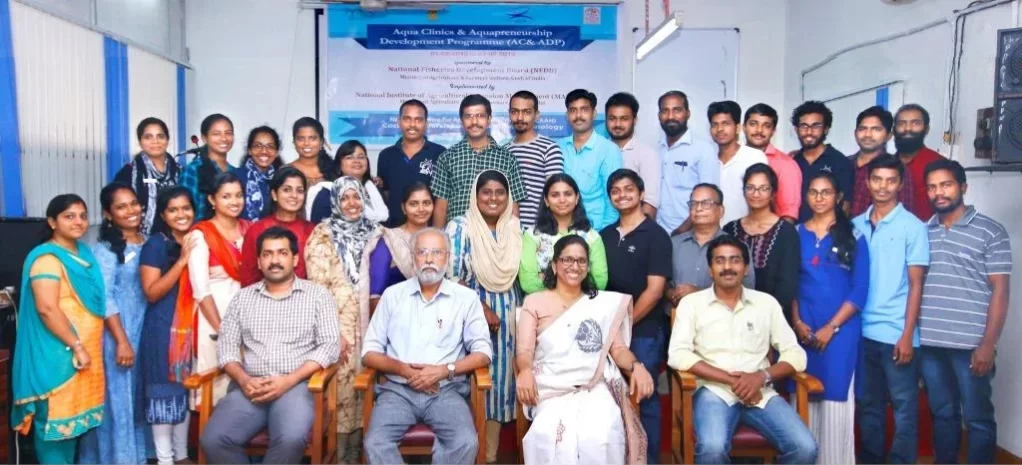
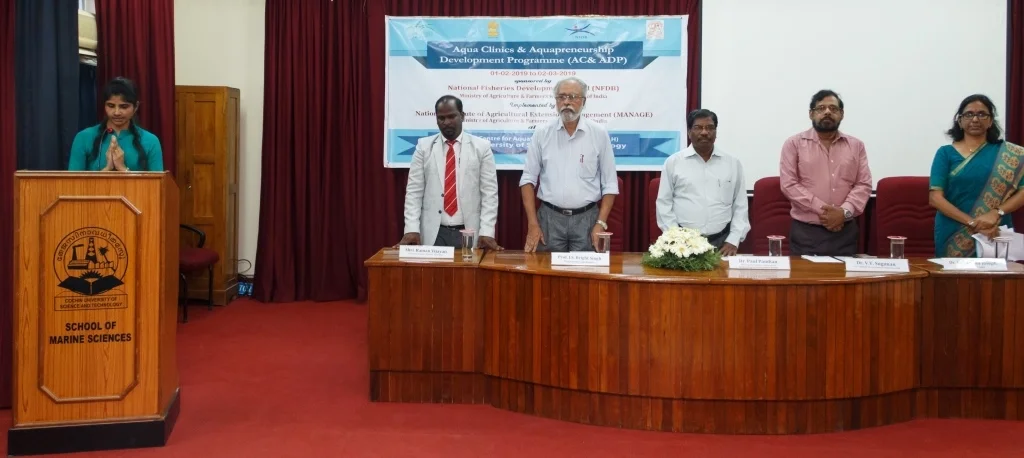
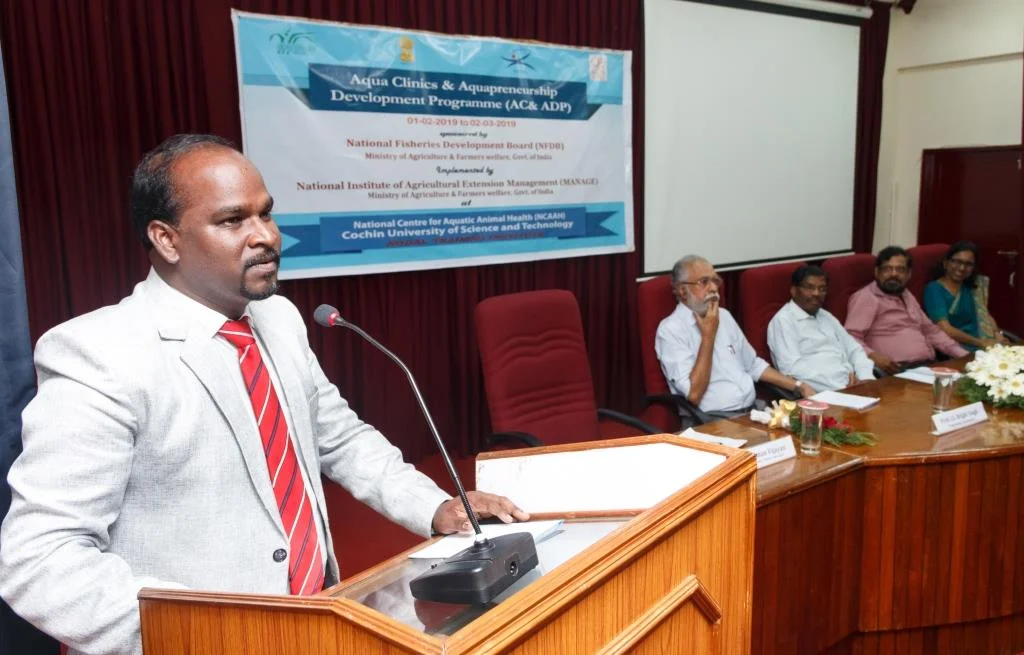
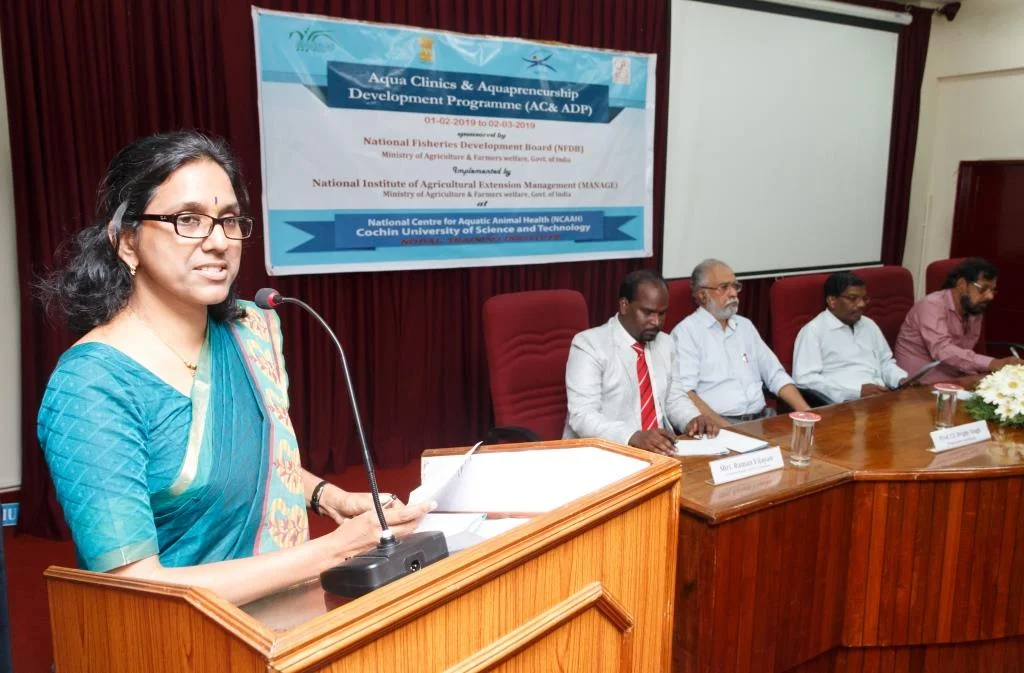
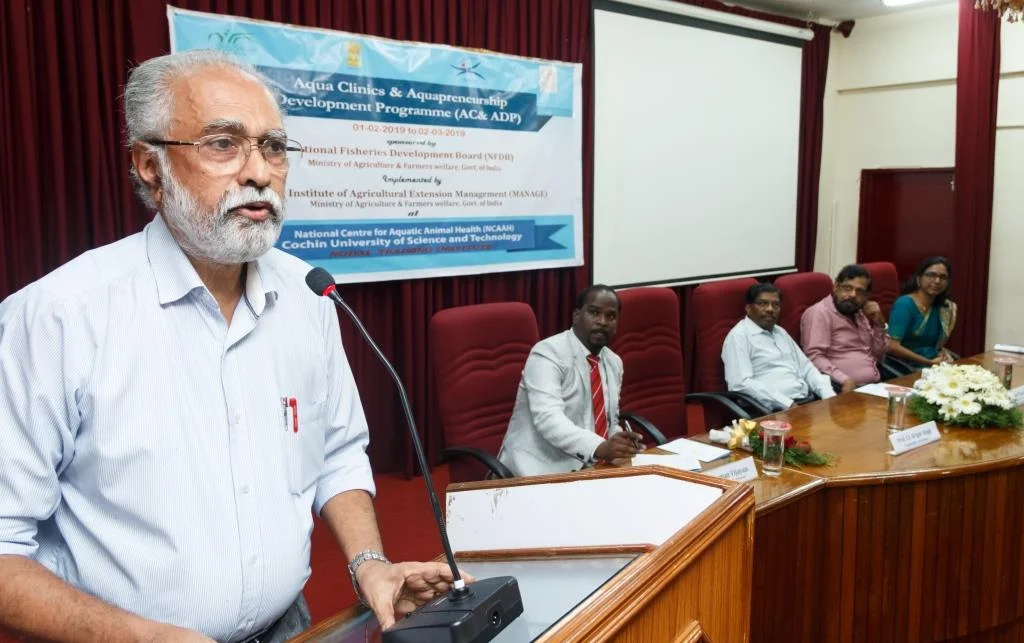
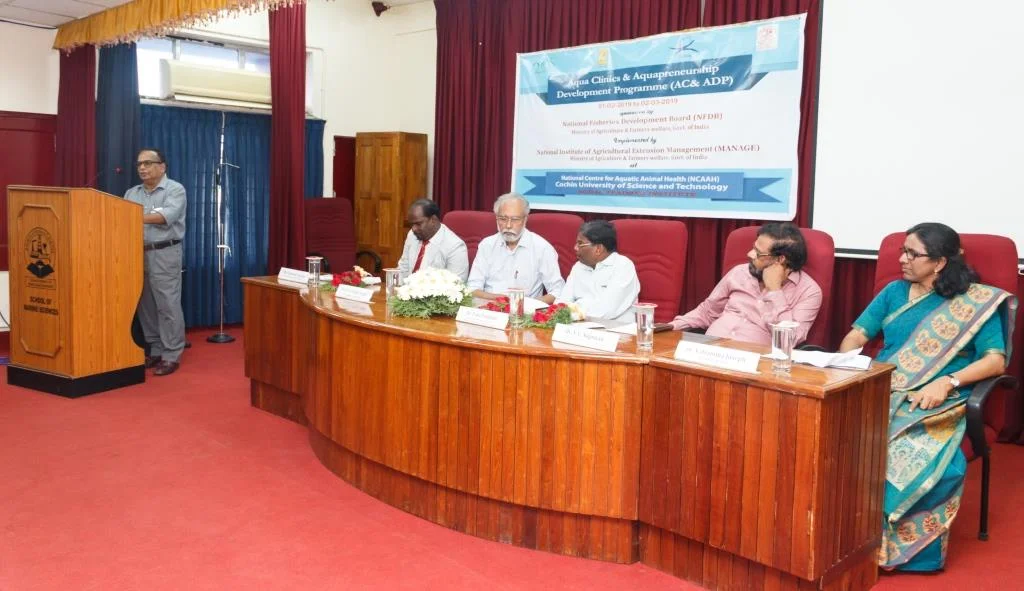
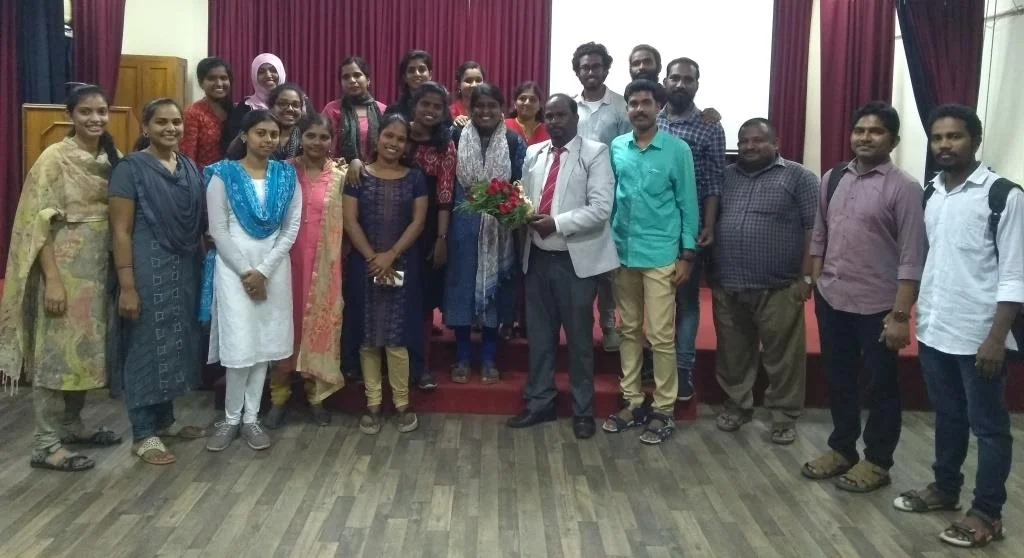

 Dr. Megha Bedekar is a veterinary Microbiology and biotechnologist working in the area of veterinary and fish health for 20 years. Her research areas are application of advanced tools for development of vaccine and diagnostics for aquatic animals.
Dr. Megha Bedekar is a veterinary Microbiology and biotechnologist working in the area of veterinary and fish health for 20 years. Her research areas are application of advanced tools for development of vaccine and diagnostics for aquatic animals. Prof. Rosamma Philip, former Dean of the Faculty of Marine Sciences, is a distinguished academic and researcher known for her significant contributions to aquaculture and marine biology. With a career spanning decades, she has been instrumental in advancing research on marine ecosystems, aquaculture practices, and aquatic organism health.
Prof. Rosamma Philip, former Dean of the Faculty of Marine Sciences, is a distinguished academic and researcher known for her significant contributions to aquaculture and marine biology. With a career spanning decades, she has been instrumental in advancing research on marine ecosystems, aquaculture practices, and aquatic organism health. Dr. Parasuraman A. S., a Humboldt Postdoctoral Research Fellow at the Thünen Institute of Fisheries Ecology, Germany, is a skilled immunologist with over a decade of expertise in aquaculture and immunology research. His work focuses on enhancing fish health and disease resistance through immunomodulation and sustainable aquaculture practices.
Dr. Parasuraman A. S., a Humboldt Postdoctoral Research Fellow at the Thünen Institute of Fisheries Ecology, Germany, is a skilled immunologist with over a decade of expertise in aquaculture and immunology research. His work focuses on enhancing fish health and disease resistance through immunomodulation and sustainable aquaculture practices. Shri G. Rathinaraj, a retired Senior Executive (Technical) from the National Fisheries Development Board (NFDB), Hyderabad, has made notable contributions to the development and promotion of aquaculture in India. With decades of experience, he has been instrumental in implementing innovative strategies to enhance aquaculture productivity, sustainability, and rural livelihoods.
Shri G. Rathinaraj, a retired Senior Executive (Technical) from the National Fisheries Development Board (NFDB), Hyderabad, has made notable contributions to the development and promotion of aquaculture in India. With decades of experience, he has been instrumental in implementing innovative strategies to enhance aquaculture productivity, sustainability, and rural livelihoods. Dr. S. Kandan, the Director of the Rajiv Gandhi Centre for Aquaculture (RGCA), is a visionary leader and an expert in aquaculture development. Under his guidance, RGCA has made significant strides in advancing sustainable aquaculture practices, focusing on promoting innovative technologies and enhancing the productivity of aquaculture systems in India.
Dr. S. Kandan, the Director of the Rajiv Gandhi Centre for Aquaculture (RGCA), is a visionary leader and an expert in aquaculture development. Under his guidance, RGCA has made significant strides in advancing sustainable aquaculture practices, focusing on promoting innovative technologies and enhancing the productivity of aquaculture systems in India. Prof. P. Chellapandi, Professor and Head of the Department of Bioinformatics at Bharathidasan University, Tiruchirappalli, is a distinguished academic with over 25 years of experience in research and teaching. His work integrates bioinformatics with sustainable technologies and healthcare solutions, contributing significantly to aquaculture advancements.
Prof. P. Chellapandi, Professor and Head of the Department of Bioinformatics at Bharathidasan University, Tiruchirappalli, is a distinguished academic with over 25 years of experience in research and teaching. His work integrates bioinformatics with sustainable technologies and healthcare solutions, contributing significantly to aquaculture advancements. Dr. V. V. R. Suresh, Principal Scientist and Head of the Mariculture Division at ICAR-Central Marine Fisheries Research Institute (ICAR-CMFRI), is a distinguished scientist renowned for his significant contributions to aquaculture, particularly mariculture. With extensive expertise in the field, he focuses on sustainable mariculture, fisheries enhancement, and conservation.
Dr. V. V. R. Suresh, Principal Scientist and Head of the Mariculture Division at ICAR-Central Marine Fisheries Research Institute (ICAR-CMFRI), is a distinguished scientist renowned for his significant contributions to aquaculture, particularly mariculture. With extensive expertise in the field, he focuses on sustainable mariculture, fisheries enhancement, and conservation. Dr. K. S. Sobhana, is a distinguished expert in marine biodiversity, environmental management, and sustainable aquaculture practices. Her research focuses on marine ecosystem conservation, the impact of environmental changes on aquaculture, and developing strategies to ensure sustainable utilization of marine resources.
Dr. K. S. Sobhana, is a distinguished expert in marine biodiversity, environmental management, and sustainable aquaculture practices. Her research focuses on marine ecosystem conservation, the impact of environmental changes on aquaculture, and developing strategies to ensure sustainable utilization of marine resources. Dr. Basdeo Kushwaha, Principal Scientist and In-Charge of the National Repository of Fish Cell Lines (NRFC) at ICAR-National Bureau of Fish Genetic Resources (ICAR-NBFGR), Lucknow, is a renowned expert in fish cell culture, aquatic animal health, and biotechnology. His pioneering work in developing and maintaining fish cell lines has greatly contributed to the study of aquatic animal diseases, toxicology, and fish genetics, playing a vital role in the sustainable development of aquaculture.
Dr. Basdeo Kushwaha, Principal Scientist and In-Charge of the National Repository of Fish Cell Lines (NRFC) at ICAR-National Bureau of Fish Genetic Resources (ICAR-NBFGR), Lucknow, is a renowned expert in fish cell culture, aquatic animal health, and biotechnology. His pioneering work in developing and maintaining fish cell lines has greatly contributed to the study of aquatic animal diseases, toxicology, and fish genetics, playing a vital role in the sustainable development of aquaculture. Dr. Preena P.G., Senior Lecturer at the Kerala University of Fisheries and Ocean Studies (KUFOS), Kochi, is a dedicated researcher and academic specializing in aquatic animal health and sustainable aquaculture practices. With extensive expertise in fish immunology, disease management, and microbiology, Dr. Preena has made significant contributions to advancing health management strategies for aquaculture species, particularly in addressing the challenges of emerging pathogens.
Dr. Preena P.G., Senior Lecturer at the Kerala University of Fisheries and Ocean Studies (KUFOS), Kochi, is a dedicated researcher and academic specializing in aquatic animal health and sustainable aquaculture practices. With extensive expertise in fish immunology, disease management, and microbiology, Dr. Preena has made significant contributions to advancing health management strategies for aquaculture species, particularly in addressing the challenges of emerging pathogens. Dr. T. V. Anilkumar, Scientist G and Head of the Division of Experimental Pathology at the Sree Chitra Tirunal Institute for Medical Sciences and Technology, is a distinguished researcher known for his interdisciplinary contributions. With expertise in biomaterials, tissue engineering, and regenerative medicine, Dr. Anilkumar’s work has extended to developing sustainable solutions for aquaculture, particularly in the areas of health management and biomaterials for aquatic applications.
Dr. T. V. Anilkumar, Scientist G and Head of the Division of Experimental Pathology at the Sree Chitra Tirunal Institute for Medical Sciences and Technology, is a distinguished researcher known for his interdisciplinary contributions. With expertise in biomaterials, tissue engineering, and regenerative medicine, Dr. Anilkumar’s work has extended to developing sustainable solutions for aquaculture, particularly in the areas of health management and biomaterials for aquatic applications. Dr. Imtiaz Ahmad Khan, a Professor in the Department of Zoology at the University of Kashmir, is a prominent researcher in the field of fisheries and aquaculture. With a strong focus on aquatic biodiversity, fish health, and sustainable aquaculture practices, he has made significant contributions to the development of aquaculture in the Himalayan and sub-Himalayan regions. His work emphasizes the sustainable management of aquatic resources and the conservation of endemic fish species while enhancing the productivity of aquaculture systems.
Dr. Imtiaz Ahmad Khan, a Professor in the Department of Zoology at the University of Kashmir, is a prominent researcher in the field of fisheries and aquaculture. With a strong focus on aquatic biodiversity, fish health, and sustainable aquaculture practices, he has made significant contributions to the development of aquaculture in the Himalayan and sub-Himalayan regions. His work emphasizes the sustainable management of aquatic resources and the conservation of endemic fish species while enhancing the productivity of aquaculture systems. Dr. Subhendu Kumar Otta, Principal Scientist at the ICAR-Central Institute of Brackishwater Aquaculture (ICAR-CIBA), is a distinguished expert in aquatic animal health and aquaculture biotechnology. With extensive experience in disease diagnosis, pathogen characterization, and health management, he has made significant contributions to enhancing the sustainability and resilience of aquaculture systems, particularly in brackishwater environments.
Dr. Subhendu Kumar Otta, Principal Scientist at the ICAR-Central Institute of Brackishwater Aquaculture (ICAR-CIBA), is a distinguished expert in aquatic animal health and aquaculture biotechnology. With extensive experience in disease diagnosis, pathogen characterization, and health management, he has made significant contributions to enhancing the sustainability and resilience of aquaculture systems, particularly in brackishwater environments.
 Prof. Felix Sugantham is a distinguished academic and researcher known for his significant contributions to aquaculture and fisheries science. With expertise in aquaculture management, aquatic animal health, and sustainable farming practices, he has been a driving force in advancing aquaculture technologies and practices that support productivity and environmental sustainability.
Prof. Felix Sugantham is a distinguished academic and researcher known for his significant contributions to aquaculture and fisheries science. With expertise in aquaculture management, aquatic animal health, and sustainable farming practices, he has been a driving force in advancing aquaculture technologies and practices that support productivity and environmental sustainability. Dr. Thitiwan Patanasatienkul, is a distinguished expert in aquatic animal health, with significant contributions to global aquaculture. Her work focuses on advancing health management practices, disease prevention, and biosecurity in aquaculture systems to support sustainable production and trade in aquatic products.
Dr. Thitiwan Patanasatienkul, is a distinguished expert in aquatic animal health, with significant contributions to global aquaculture. Her work focuses on advancing health management practices, disease prevention, and biosecurity in aquaculture systems to support sustainable production and trade in aquatic products.
 Dr. P. Jayagopal, Deputy Director at the Marine Products Export Development Authority (MPEDA), is a respected figure in aquaculture and seafood export development. With extensive experience in aquaculture management and policy implementation, he has made significant contributions to promoting sustainable aquaculture practices and enhancing India’s seafood export potential. His expertise spans areas such as aquaculture certification, disease management, and capacity building for stakeholders in the aquaculture value chain.
Dr. P. Jayagopal, Deputy Director at the Marine Products Export Development Authority (MPEDA), is a respected figure in aquaculture and seafood export development. With extensive experience in aquaculture management and policy implementation, he has made significant contributions to promoting sustainable aquaculture practices and enhancing India’s seafood export potential. His expertise spans areas such as aquaculture certification, disease management, and capacity building for stakeholders in the aquaculture value chain. Dr. Vasant Kripa is the former Member Secretary of the Coastal Aquaculture Authority (CAA) in Chennai, India, and a highly respected scientist in marine biology, coastal aquaculture, and environmental management. With a career spanning over three decades, Dr. Kripa has been instrumental in developing policies and practices that promote sustainable and responsible coastal aquaculture in India. Her work has focused on balancing the growth of aquaculture with environmental conservation, ensuring that coastal ecosystems remain resilient and productive.
Dr. Vasant Kripa is the former Member Secretary of the Coastal Aquaculture Authority (CAA) in Chennai, India, and a highly respected scientist in marine biology, coastal aquaculture, and environmental management. With a career spanning over three decades, Dr. Kripa has been instrumental in developing policies and practices that promote sustainable and responsible coastal aquaculture in India. Her work has focused on balancing the growth of aquaculture with environmental conservation, ensuring that coastal ecosystems remain resilient and productive. Dr. Sumithra T.G., Scientist at ICAR-Central Marine Fisheries Research Institute (ICAR-CMFRI), is an expert in microbiology with over a decade of experience, specializing in fish health and marine pathogen research. Since 2016, she has focused on characterizing pathogens and developing aquatic health management strategies to enhance mariculture production. Her work includes detailed profiling of bacterial, viral, and parasitic pathogens causing mortalities in cultured marine fishes, contributing valuable insights to the aquaculture sector through publications in peer-reviewed international journals.
Dr. Sumithra T.G., Scientist at ICAR-Central Marine Fisheries Research Institute (ICAR-CMFRI), is an expert in microbiology with over a decade of experience, specializing in fish health and marine pathogen research. Since 2016, she has focused on characterizing pathogens and developing aquatic health management strategies to enhance mariculture production. Her work includes detailed profiling of bacterial, viral, and parasitic pathogens causing mortalities in cultured marine fishes, contributing valuable insights to the aquaculture sector through publications in peer-reviewed international journals. Dr. Rohana Subasinghe is the Managing Director of FutureFish, a consultancy specializing in sustainable aquaculture and fisheries development. With over 30 years of experience in aquaculture, aquatic animal health, and international fisheries, Dr. Subasinghe is a globally recognized expert dedicated to promoting sustainable practices that support food security, environmental protection, and socioeconomic growth.
Dr. Rohana Subasinghe is the Managing Director of FutureFish, a consultancy specializing in sustainable aquaculture and fisheries development. With over 30 years of experience in aquaculture, aquatic animal health, and international fisheries, Dr. Subasinghe is a globally recognized expert dedicated to promoting sustainable practices that support food security, environmental protection, and socioeconomic growth. Padma Shri Dr. Modadugu Vijay Gupta is a globally renowned scientist celebrated for his transformative contributions to aquaculture and rural development. Often referred to as the “Father of Blue Revolution,” his pioneering work has revolutionized aquaculture practices, particularly in developing countries, by making fish farming accessible to resource-poor farmers. Dr. Gupta’s innovations in low-cost aquaculture technologies have significantly enhanced food security, nutrition, and livelihoods for millions.
Padma Shri Dr. Modadugu Vijay Gupta is a globally renowned scientist celebrated for his transformative contributions to aquaculture and rural development. Often referred to as the “Father of Blue Revolution,” his pioneering work has revolutionized aquaculture practices, particularly in developing countries, by making fish farming accessible to resource-poor farmers. Dr. Gupta’s innovations in low-cost aquaculture technologies have significantly enhanced food security, nutrition, and livelihoods for millions. Dr. Subhashini C.R., Director of Aristogene Biosciences, is a prominent figure in the field of biotechnology with significant contributions to aquaculture health management. With expertise in molecular diagnostics and aquatic disease research, she has been instrumental in developing innovative solutions to address health challenges in aquaculture systems. Her work focuses on creating advanced diagnostic tools and health management products that enhance the sustainability and productivity of the aquaculture industry.
Dr. Subhashini C.R., Director of Aristogene Biosciences, is a prominent figure in the field of biotechnology with significant contributions to aquaculture health management. With expertise in molecular diagnostics and aquatic disease research, she has been instrumental in developing innovative solutions to address health challenges in aquaculture systems. Her work focuses on creating advanced diagnostic tools and health management products that enhance the sustainability and productivity of the aquaculture industry. Dr. Pawan Dhar, is a renowned expert in synthetic biology and systems biology, with emerging contributions to aquaculture biotechnology. With a diverse scientific background, Dr. Dhar’s work emphasizes leveraging synthetic biology to address challenges in sustainable aquaculture and aquatic resource management.
Dr. Pawan Dhar, is a renowned expert in synthetic biology and systems biology, with emerging contributions to aquaculture biotechnology. With a diverse scientific background, Dr. Dhar’s work emphasizes leveraging synthetic biology to address challenges in sustainable aquaculture and aquatic resource management. Dr. A. Gopalakrishnan, is a distinguished scientist whose contributions have significantly advanced marine fisheries and aquaculture research in India. With a career spanning decades, Dr. Gopalakrishnan played a pivotal role in promoting sustainable marine resource management, species diversification, and the development of mariculture technologies. Under his leadership, ICAR-CMFRI made remarkable strides in areas such as open-sea cage farming, marine biodiversity conservation, and stock enhancement programs.
Dr. A. Gopalakrishnan, is a distinguished scientist whose contributions have significantly advanced marine fisheries and aquaculture research in India. With a career spanning decades, Dr. Gopalakrishnan played a pivotal role in promoting sustainable marine resource management, species diversification, and the development of mariculture technologies. Under his leadership, ICAR-CMFRI made remarkable strides in areas such as open-sea cage farming, marine biodiversity conservation, and stock enhancement programs. Dr. S. R. Krupesha Sharma, a Principal Scientist at the ICAR-Central Marine Fisheries Research Institute (ICAR-CMFRI), is a distinguished expert in marine aquaculture and sustainable mariculture practices. With extensive experience in developing innovative technologies and farming systems, his work has significantly advanced India’s marine aquaculture sector, particularly in the production of high-value species. Dr. Sharma specializes in seed production, grow-out culture, and the development of sustainable farming methods for finfish, shellfish, and seaweed, contributing to enhanced productivity and profitability for coastal communities.
Dr. S. R. Krupesha Sharma, a Principal Scientist at the ICAR-Central Marine Fisheries Research Institute (ICAR-CMFRI), is a distinguished expert in marine aquaculture and sustainable mariculture practices. With extensive experience in developing innovative technologies and farming systems, his work has significantly advanced India’s marine aquaculture sector, particularly in the production of high-value species. Dr. Sharma specializes in seed production, grow-out culture, and the development of sustainable farming methods for finfish, shellfish, and seaweed, contributing to enhanced productivity and profitability for coastal communities. Dr. P.K. Patil, Principal Scientist in the Aquatic Animal Health and Environment Division at the ICAR-Central Institute of Brackishwater Aquaculture (ICAR-CIBA), is a leading expert in aquatic animal health and disease management. His work has significantly contributed to the sustainability and productivity of brackishwater aquaculture in India, focusing on health management strategies for farmed shrimp and fish species. Dr. Patil’s research addresses critical challenges such as disease outbreaks, biosecurity, and the environmental impact of aquaculture practices.
Dr. P.K. Patil, Principal Scientist in the Aquatic Animal Health and Environment Division at the ICAR-Central Institute of Brackishwater Aquaculture (ICAR-CIBA), is a leading expert in aquatic animal health and disease management. His work has significantly contributed to the sustainability and productivity of brackishwater aquaculture in India, focusing on health management strategies for farmed shrimp and fish species. Dr. Patil’s research addresses critical challenges such as disease outbreaks, biosecurity, and the environmental impact of aquaculture practices. Dr. Prem Kumar, a Senior Scientist in the Finfish Culture Division at the ICAR-Central Institute of Fisheries Education (ICAR-CIFE), is recognized for his contributions to finfish aquaculture and sustainable fish farming practices. His research focuses on advancing breeding, seed production, and grow-out techniques for economically important finfish species, essential for enhancing fish farming efficiency and profitability. Dr. Kumar has been instrumental in developing improved methods for breeding and rearing native fish species, supporting biodiversity conservation while boosting aquaculture productivity in India.
Dr. Prem Kumar, a Senior Scientist in the Finfish Culture Division at the ICAR-Central Institute of Fisheries Education (ICAR-CIFE), is recognized for his contributions to finfish aquaculture and sustainable fish farming practices. His research focuses on advancing breeding, seed production, and grow-out techniques for economically important finfish species, essential for enhancing fish farming efficiency and profitability. Dr. Kumar has been instrumental in developing improved methods for breeding and rearing native fish species, supporting biodiversity conservation while boosting aquaculture productivity in India. Dr. David Verner-Jeffreys is a Senior Scientist at WorldFish and an esteemed expert in aquatic animal health and aquaculture biosecurity. With a background in fish pathology and disease management, Dr. Verner-Jeffreys has dedicated his career to developing solutions that enhance disease prevention and sustainable health practices in aquaculture systems globally. His research focuses on combating infectious diseases that impact fish farming, particularly in developing countries, where aquaculture plays a crucial role in food security and livelihoods.
Dr. David Verner-Jeffreys is a Senior Scientist at WorldFish and an esteemed expert in aquatic animal health and aquaculture biosecurity. With a background in fish pathology and disease management, Dr. Verner-Jeffreys has dedicated his career to developing solutions that enhance disease prevention and sustainable health practices in aquaculture systems globally. His research focuses on combating infectious diseases that impact fish farming, particularly in developing countries, where aquaculture plays a crucial role in food security and livelihoods. Dr. M. Shashi Shekhar, is a distinguished expert in aquatic animal health and environmental management in brackishwater aquaculture. With extensive experience in fish and shrimp health management, his work addresses critical challenges in disease prevention, environmental sustainability, and biosecurity, contributing to the growth and resilience of India’s brackishwater aquaculture sector. By emphasizing biosecurity, environmental monitoring, and eco-friendly health management practices, Dr. Shekhar has contributed to enhancing the resilience and sustainability of shrimp and fish farming.
Dr. M. Shashi Shekhar, is a distinguished expert in aquatic animal health and environmental management in brackishwater aquaculture. With extensive experience in fish and shrimp health management, his work addresses critical challenges in disease prevention, environmental sustainability, and biosecurity, contributing to the growth and resilience of India’s brackishwater aquaculture sector. By emphasizing biosecurity, environmental monitoring, and eco-friendly health management practices, Dr. Shekhar has contributed to enhancing the resilience and sustainability of shrimp and fish farming. Dr. K.V. Rajendran is a prominent aquaculture scientist at the ICAR-Central Institute of Fisheries Education (ICAR-CIFE) in India, recognized for his expertise in fish health management and aquatic animal disease control. With a focus on advancing disease diagnostics, biosecurity, and sustainable health practices in aquaculture, Dr. Rajendran’s work has greatly contributed to improving the resilience and productivity of India’s aquaculture sector. His research addresses major challenges related to fish and shellfish health, particularly in diagnosing and managing viral, bacterial, and parasitic diseases that impact farmed species.
Dr. K.V. Rajendran is a prominent aquaculture scientist at the ICAR-Central Institute of Fisheries Education (ICAR-CIFE) in India, recognized for his expertise in fish health management and aquatic animal disease control. With a focus on advancing disease diagnostics, biosecurity, and sustainable health practices in aquaculture, Dr. Rajendran’s work has greatly contributed to improving the resilience and productivity of India’s aquaculture sector. His research addresses major challenges related to fish and shellfish health, particularly in diagnosing and managing viral, bacterial, and parasitic diseases that impact farmed species. Dr. T. Raja Swaminathan is a renowned scientist at the ICAR-Central Institute of Fisheries Technology (ICAR-CIFT) in Kochi, India, with expertise in fish health management, aquaculture biosecurity, and disease diagnostics. His work focuses on addressing challenges related to aquatic animal health, particularly in ensuring sustainable and safe practices in India’s aquaculture industry. Dr. Swaminathan is recognized for his contributions to the detection and control of fish and shellfish diseases, which are critical for enhancing productivity and reducing economic losses in aquaculture.
Dr. T. Raja Swaminathan is a renowned scientist at the ICAR-Central Institute of Fisheries Technology (ICAR-CIFT) in Kochi, India, with expertise in fish health management, aquaculture biosecurity, and disease diagnostics. His work focuses on addressing challenges related to aquatic animal health, particularly in ensuring sustainable and safe practices in India’s aquaculture industry. Dr. Swaminathan is recognized for his contributions to the detection and control of fish and shellfish diseases, which are critical for enhancing productivity and reducing economic losses in aquaculture. Dr. Neeraj Sood, a distinguished scientist at the ICAR-National Bureau of Fish Genetic Resources (ICAR-NBFGR) in India, is recognized for his work in fish genetics, conservation, and sustainable aquaculture practices. His research focuses on the genetic characterization and conservation of fish biodiversity, which is critical for protecting valuable genetic resources and promoting sustainable aquaculture. By identifying and cataloging fish species and their genetic diversity, Dr. Sood has contributed to the preservation of native fish species, ensuring that these resources can support resilient and productive aquaculture systems in India.
Dr. Neeraj Sood, a distinguished scientist at the ICAR-National Bureau of Fish Genetic Resources (ICAR-NBFGR) in India, is recognized for his work in fish genetics, conservation, and sustainable aquaculture practices. His research focuses on the genetic characterization and conservation of fish biodiversity, which is critical for protecting valuable genetic resources and promoting sustainable aquaculture. By identifying and cataloging fish species and their genetic diversity, Dr. Sood has contributed to the preservation of native fish species, ensuring that these resources can support resilient and productive aquaculture systems in India.
 Dr. B. Santhosh, a leading scientist at the Vizhinjam Regional Centre of the ICAR-Central Marine Fisheries Research Institute (ICAR-CMFRI), is known for his impactful contributions to marine aquaculture and coastal fisheries development in India. His work focuses on advancing sustainable practices in mariculture, particularly in seed production, hatchery technology, and the cultivation of high-value marine species like finfish, shellfish, and sea cucumbers. Dr. Santhosh’s research has played a critical role in supporting livelihood opportunities for coastal communities by promoting aquaculture as a viable and environmentally sustainable industry.
Dr. B. Santhosh, a leading scientist at the Vizhinjam Regional Centre of the ICAR-Central Marine Fisheries Research Institute (ICAR-CMFRI), is known for his impactful contributions to marine aquaculture and coastal fisheries development in India. His work focuses on advancing sustainable practices in mariculture, particularly in seed production, hatchery technology, and the cultivation of high-value marine species like finfish, shellfish, and sea cucumbers. Dr. Santhosh’s research has played a critical role in supporting livelihood opportunities for coastal communities by promoting aquaculture as a viable and environmentally sustainable industry. Dr. Victoria Alday-Sanz is a renowned aquaculture expert at National Aquaculture Group (NAQUA) in Saudi Arabia, recognized globally for her work in shrimp health management, biosecurity, and sustainable aquaculture practices. With a background in veterinary science and extensive experience in aquatic animal health, Dr. Alday-Sanz has played a critical role in advancing shrimp farming practices to enhance productivity while maintaining rigorous biosecurity standards. Her work is instrumental in addressing major health challenges in shrimp aquaculture, particularly in the prevention and management of viral and bacterial diseases that can impact large-scale operations.
Dr. Victoria Alday-Sanz is a renowned aquaculture expert at National Aquaculture Group (NAQUA) in Saudi Arabia, recognized globally for her work in shrimp health management, biosecurity, and sustainable aquaculture practices. With a background in veterinary science and extensive experience in aquatic animal health, Dr. Alday-Sanz has played a critical role in advancing shrimp farming practices to enhance productivity while maintaining rigorous biosecurity standards. Her work is instrumental in addressing major health challenges in shrimp aquaculture, particularly in the prevention and management of viral and bacterial diseases that can impact large-scale operations.
 J.M.P.K. Jayasinghe is a distinguished figure in aquaculture, known for his contributions to sustainable fish farming practices, particularly in Asia. With a focus on innovative aquaculture technologies and resource management, he has dedicated his career to improving the productivity, efficiency, and environmental sustainability of aquaculture systems. Jayasinghe has been involved in developing best practices that help small-scale and commercial farmers enhance yields while minimizing the environmental impact, which is crucial for both economic growth and ecological health.
J.M.P.K. Jayasinghe is a distinguished figure in aquaculture, known for his contributions to sustainable fish farming practices, particularly in Asia. With a focus on innovative aquaculture technologies and resource management, he has dedicated his career to improving the productivity, efficiency, and environmental sustainability of aquaculture systems. Jayasinghe has been involved in developing best practices that help small-scale and commercial farmers enhance yields while minimizing the environmental impact, which is crucial for both economic growth and ecological health.
 Dr. K.M. Shankar is the Vice Chairman of the Asian Fisheries Society, Indian Branch, and former Dean of the College of Fisheries in Mangalore, India. A highly respected figure in fish health management and aquaculture, Dr. Shankar has contributed significantly to advancing aquaculture science, particularly in aquatic animal health, biotechnology, and sustainable fisheries. His research focuses on pathogen detection, disease management, and biosecurity in aquaculture, addressing key challenges to improve productivity and sustainability in the industry.
Dr. K.M. Shankar is the Vice Chairman of the Asian Fisheries Society, Indian Branch, and former Dean of the College of Fisheries in Mangalore, India. A highly respected figure in fish health management and aquaculture, Dr. Shankar has contributed significantly to advancing aquaculture science, particularly in aquatic animal health, biotechnology, and sustainable fisheries. His research focuses on pathogen detection, disease management, and biosecurity in aquaculture, addressing key challenges to improve productivity and sustainability in the industry.
 Prof. Arun K. Dhar is a Professor and Director of the Aquaculture Pathology Laboratory at the School of Animal & Comparative Biomedical Sciences, The University of Arizona, USA. An expert in aquaculture pathology and virology, Prof. Dhar is highly regarded for his research on diseases affecting shrimp and other aquatic species. His work focuses on identifying, understanding, and managing viral pathogens that pose significant threats to aquaculture industries globally.
Prof. Arun K. Dhar is a Professor and Director of the Aquaculture Pathology Laboratory at the School of Animal & Comparative Biomedical Sciences, The University of Arizona, USA. An expert in aquaculture pathology and virology, Prof. Dhar is highly regarded for his research on diseases affecting shrimp and other aquatic species. His work focuses on identifying, understanding, and managing viral pathogens that pose significant threats to aquaculture industries globally. Dr. Iddya Karunasagar is a distinguished Indian microbiologist and food safety expert, known for his pioneering work in aquatic microbiology, aquaculture health, and public health. His research focuses on seafood safety and disease management in aquaculture, with significant contributions to understanding and controlling microbial pathogens, such as Vibrio species, which affect marine organisms. His work has helped develop diagnostic tools and strategies that promote sustainability in aquaculture and ensure safer seafood.
Dr. Iddya Karunasagar is a distinguished Indian microbiologist and food safety expert, known for his pioneering work in aquatic microbiology, aquaculture health, and public health. His research focuses on seafood safety and disease management in aquaculture, with significant contributions to understanding and controlling microbial pathogens, such as Vibrio species, which affect marine organisms. His work has helped develop diagnostic tools and strategies that promote sustainability in aquaculture and ensure safer seafood. Dr. Pramoda Kumar Sahoo is the Director-cum-ICAR National Professor at the Indian Council of Agricultural Research-Central Institute of Freshwater Aquaculture (ICAR-CIFA). A leading expert in fish health management and aquatic animal diseases, Dr. Sahoo’s work focuses on advancing disease control, immunology, and molecular biology in freshwater aquaculture. His research is pivotal in improving the health, resilience, and sustainability of India’s aquaculture industry, which plays a vital role in food security and rural livelihoods.
Dr. Pramoda Kumar Sahoo is the Director-cum-ICAR National Professor at the Indian Council of Agricultural Research-Central Institute of Freshwater Aquaculture (ICAR-CIFA). A leading expert in fish health management and aquatic animal diseases, Dr. Sahoo’s work focuses on advancing disease control, immunology, and molecular biology in freshwater aquaculture. His research is pivotal in improving the health, resilience, and sustainability of India’s aquaculture industry, which plays a vital role in food security and rural livelihoods.
 Dr. Eduardo Leano is the Director General of the Network of Aquaculture Centres in Asia-Pacific (NACA), an intergovernmental organization focused on sustainable aquaculture development in the Asia-Pacific region. With a strong background in aquatic animal health and pathology, Dr. Leano has dedicated his career to advancing sustainable aquaculture practices, improving disease management, and promoting biosecurity within the industry.
Dr. Eduardo Leano is the Director General of the Network of Aquaculture Centres in Asia-Pacific (NACA), an intergovernmental organization focused on sustainable aquaculture development in the Asia-Pacific region. With a strong background in aquatic animal health and pathology, Dr. Leano has dedicated his career to advancing sustainable aquaculture practices, improving disease management, and promoting biosecurity within the industry.